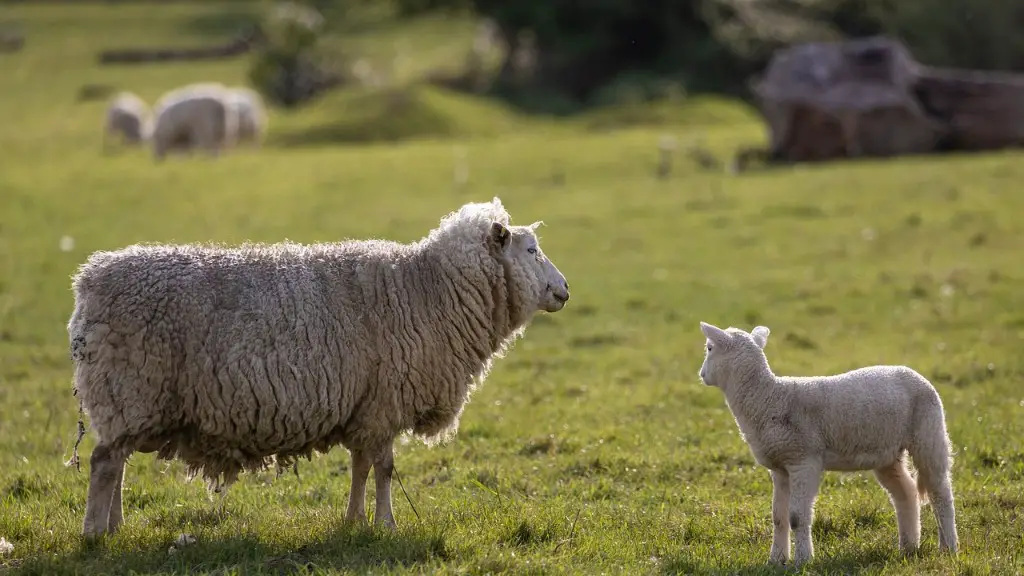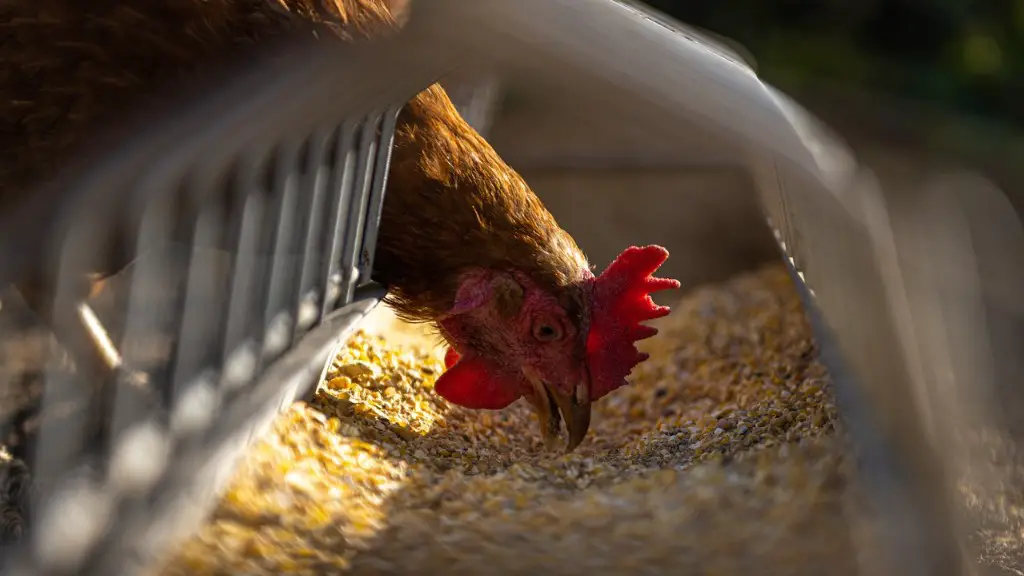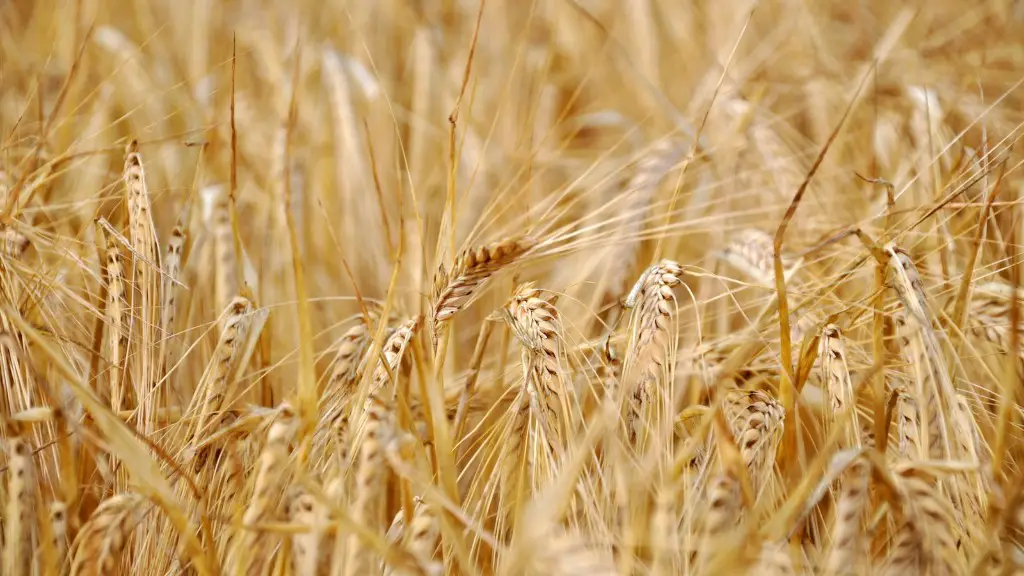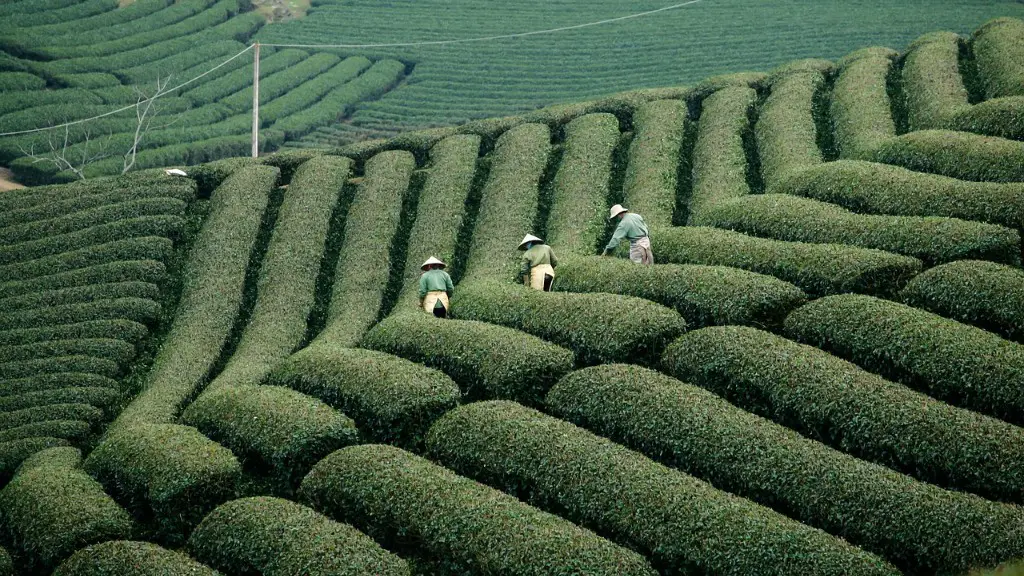The study of pre-agricultural people is called paleoanthropology. Scientists who study paleoanthropology try to answer questions about early human behavior, including how they survived and how they evolved. Most paleoanthropologists study human fossils and stone tools.
In short, people hunted and gathered before they had agriculture. This way of life is often called “the old way” or “the old way of life”.
What did most humans do for food before farming was invented?
Humans have been eating food they gathered and hunted for over 2 million years. It wasn’t until agriculture was developed around 10,000 years ago that humans began to domesticate plants and animals for food. Agriculture allowed humans to settle in one place and create civilizations. Today, most people get their food from grocery stores, but some people still hunt, gather, and fish for their food.
Most farmers would grow a variety of crops, depending on where they lived. Tobacco, wheat, barley, oats, rice, corn, and vegetables were some of the most common crops grown. Farmers also had many different kinds of livestock, such as chicken, cows, pigs, ducks, geese, and more.
When did humans start agriculture
Around 12,000 years ago, our hunter-gatherer ancestors began trying their hand at farming. First, they grew wild varieties of crops like peas, lentils and barley. They also herded wild animals like goats and wild oxen.
The Neolithic Era was a time of transition for humans, from a nomadic, hunter-gatherer lifestyle to one of settled farming. This transition may have taken place over hundreds or even thousands of years, as humans slowly learned how to cultivate plants and animals. The Neolithic Era was a time of great change for human societies, and the impact of this period is still felt today.
How did humans live before invention of agriculture?
The development of agriculture about 12,000 years ago changed the way humans lived. They switched from nomadic hunter-gatherer lifestyles to permanent settlements and farming. This allowed for the domestication of plants and animals, which led to the development of civilizations. Agriculture has had a profound impact on human history, and continues to be a vital part of our lives today.
Hunter-gatherer culture is a type of subsistence lifestyle that relies on hunting and fishing animals and foraging for wild vegetation and other nutrients like honey, for food. Until approximately 12,000 years ago, all humans practiced hunting-gathering. This type of lifestyle is still practiced today by some cultures around the world.
Hunter-gatherers must have a strong knowledge of their local environment in order to be successful. This includes knowing what plants and animals are edible, where to find them, and how to prepare them. This way of life is very labor-intensive and requires a great deal of time and effort to maintain.
Despite the challenges, hunter-gatherer cultures have a deep respect for the natural world and a strong sense of community. This way of life has allowed humans to survive for thousands of years and continues to be an important part of the human experience.
What is agriculture before?
Agriculture allowed for the domestication of plants and animals, which led to the development of civilizations. Agriculture allowed for the growth of cities and the rise of civilizations. With the help of irrigation and other technological advances, agriculture became more efficient and productive. Today, agriculture is a vital part of the global economy, providing food, fiber, and other products.
The challenges that many American farmers faced in the last quarter of the nineteenth century were significant. They contended with economic hardships born out of rapidly declining farm prices, prohibitively high tariffs on items they needed to purchase, and foreign competition. In addition, they had to contend with devastating droughts, insect infestations, and other natural disasters.
What did farmers use in the 1800s
Farmers in the 1800s used a variety of machines to help them with their harvests. From simple hoes to threshers, these machines helped them to increase their yields and produce better crops. However, these machines were often difficult to operate and required a lot of manual labor. Finally, in the late 1800s, steam engines were developed that helped to power these machines. This made them much easier to operate and allowed farmers to increase their production even further.
The world population has grown exponentially over the past 10,000 years, largely due to the Agricultural Revolution. This period of history saw the introduction of new farming techniques that allowed for larger crop yields, which in turn led to a population boom. Today, the world population is estimated to be over 7 billion people. While this is a remarkable achievement, it has also put a strain on the world’s resources, and many experts believe that the current population growth is not sustainable in the long term.
What is the oldest crop?
Lentils are an ancient food that has played an important role in human history. For over 13,000 years, lentils have been a staple food in many cultures. Today, we enjoy them in soups, stews, and salads. In ancient times, however, lentils were an important part of establishing modern societies. Lentils are a nutritious and versatile food that is easy to grow and store. They are an excellent source of protein, fiber, and vitamins. Lentils were a key ingredient in the development of early civilizations. They helped to establish cities and cultures that continue to thrive today.
Organic farming is a concept that was adopted by ancient farmers in order to restore soil fertility. Mixed or inter cropping with legumes in cereal and oil seed cultivation were widely practices in order to add nitrogen to the soil. These practices are now being recommended again under the organic farming concept.
Did war exist before agriculture
This study provides new insight into the human propensity for violence. It shows that warfare can and did occur in the absence of agriculture and complex social organization. This suggests a continuum between chimpanzee raiding and full-blown human warfare.
But new research has found evidence that farming was practiced in Greece at least 7,000 years ago, making it the earliest-known farming society in Europe.
Why did humans start agriculture?
However, new research has suggested that this may not be the case – and that farming may have actually made early humans less efficient. In a study published in the journal Nature, scientists analyzed the diets of early humans and found that they were actually getting more food – and more variety – by hunting and gathering.
The researchers say this new finding challenges the long-held belief that farming led to increased efficiency and productivity. Instead, it suggests that early humans may have taken up farming for other reasons, such as social or environmental factors.
This is an interesting finding that challenges our previous understanding of early human history. It will be interesting to see how this research develops and what other insights it can provide into the lives of our ancestors.
Agriculture allowed humans to grow all the food they needed in one place, which led to massive population growth. This, in turn, created cities and trade. Farming enabled people to live in one place, which made it easier to protect their food supply, and also allowed for the development of civilizations.
How did people live 10,000 years ago
The Stone Age was a time of great change for early humans. Around 10,000 BC, they began to domesticate plants and animals, which led to the development of civilizations. The use of stone tools also allowed for the development of new technologies, such as pottery and metallurgy.
Although many humans choose to eat both plants and meat, we are anatomically herbivorous. The good news is that if you want to eat like our ancestors, you still can: Nuts, vegetables, fruit, and legumes are the basis of a healthy vegan lifestyle.
Warp Up
People were hunter-gatherers before they had agriculture.
Before agriculture, people were hunter-gatherers. They hunted animals and gathered plants for food. This way of life was very difficult and dangerous. People had to travel long distances to find food, and they were often hungry. Agriculture made it possible for people to have a reliable source of food. It also allowed people to settle down in one place.





